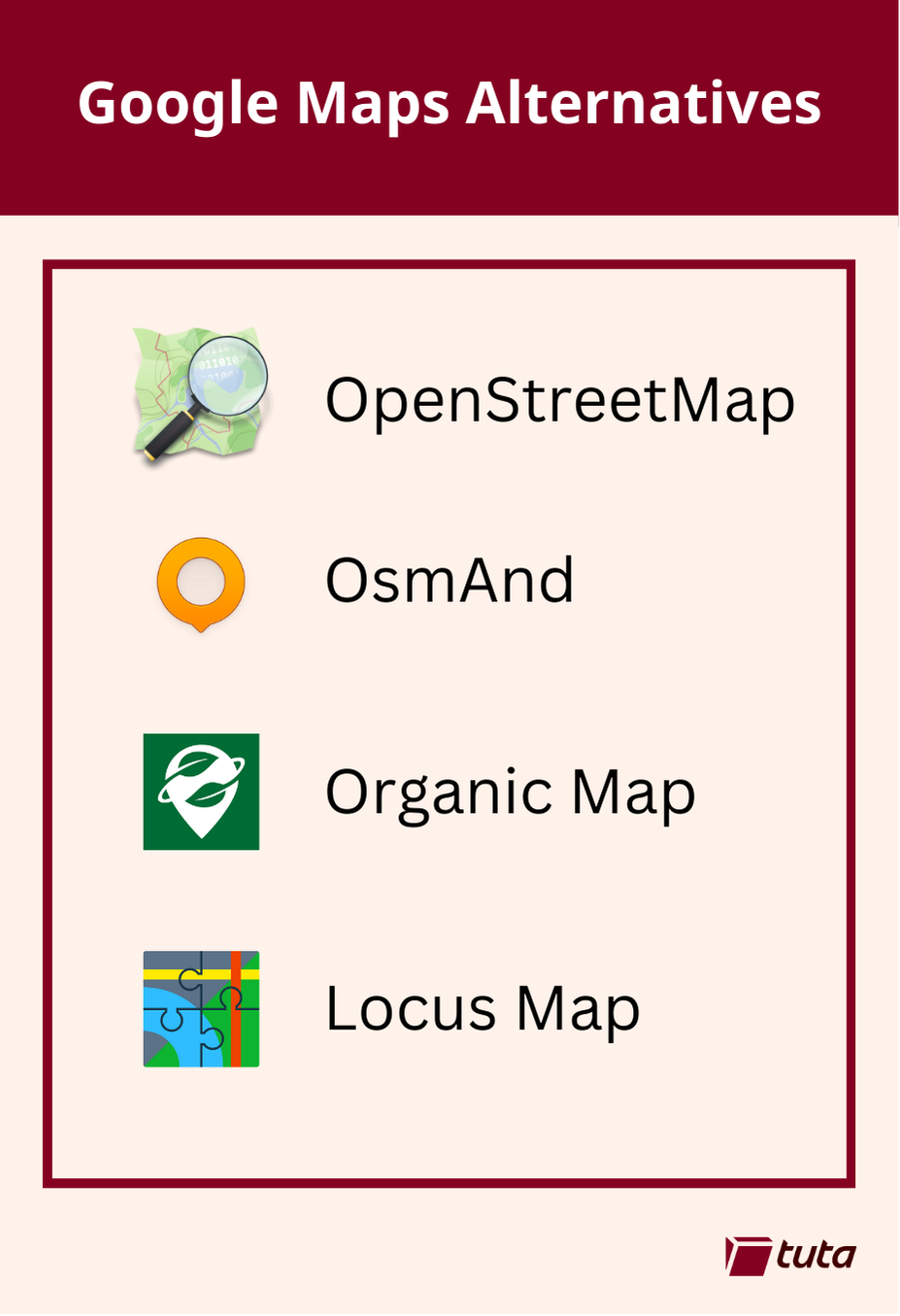repeated media reports of Google’s disregard for the privacy of the general public led to a push for open source, community driven alternatives to Google Maps. The biggest contender, now used by Google’s direct competitors and open source projects alike is OpenStreetMap.
- OsmAnd
OsmAnd is a fantastic choice when searching for an alternative to Google Maps. It is available on both Android and iOS devices with both free and paid subscription options. Free accounts have full access to maps and navigation features, but choosing a paid subscription will allow you unlimited map downloads and increases the frequency of updates.
All subscriptions can take advantage of turn-by-turn navigation, route planning, map markers, and all the favorite features you expect from a map and navigation app in 2024. By making the jump to a paid subscription you get some extra features like topo maps, nautical depths, and even point-of-interest data imported from Wikipedia.
- Organic Maps
Organic Maps is a great choice primarily because they offer support for all features of their iOS and Android apps completely offline. This means if you have an old phone laying around, you can install the app, download the maps you need and presto! You now have an indepth digital map in the palm of your hand without needing to worry about losing or damaging your primary mobile device when exploring the outdoors.
Organic Maps tugs our heartstrings by their commitment to privacy. The app can run entirely without a network connection and comes with no ads, tracking, data collection, and best of all no registration.
- Locus Maps
Our third, and last recommendation today is Locus Maps. Locus Maps is built by outdoor enthusiasts for the same community. Hiking, biking, and geocaching are all mainstays of the Locus App, alongside standard street map navigation as well.
Locus is available in its complete version for Android, and an early version is available for iOS which is continuing to be worked on. Locus Maps offers navigation, tracking and routes, and also information on points-of-interest you might visit or stumble upon during your adventures.



Without active traffic data, none of these is an adequate substitute for Google Maps navigation.
That’s the price of privacy. Google has that traffic data because there are so many drivers with thier app installed. If you are OK with a giant corporation monitoring your every move, then of course that convenience is a good reason to use thier services.
Data is the new oil.
I’m not sure if traffic is “convenience” at this point. At least where I live, it’s a nearly essential piece of functionality.
In fact, for local driving it’s often the only reason to use a map app. I already know how to get to most of the places I want to go, I just need to know the best route to avoid traffic now.
For me it is, apparently for you it is not. We have different use cases. That’s cool.
Just to be clear, I’m not here to judge. Everyone has thier own life with it’s multitude of little and big decisions. It would be presumptuous and ignorant of me to assume what applies to me also applies to you.
The focus should be on helping each other to make informed decisions.
https://www.magicearth.com/ has traffic.
Magic Earth kicks serious ass, it’s legitimately performed better than both Google and Apple maps in my area. Searching for businesses is still a little janky, but if you’re patient enough to just use Google maps to find a place and then copy the address it’s exquisite, seriously.
It has traffic so it must have infrastructure to maintain, yet it also claims to be completely free.
How does this project make money?
https://www.magicearth.com/faq-en/